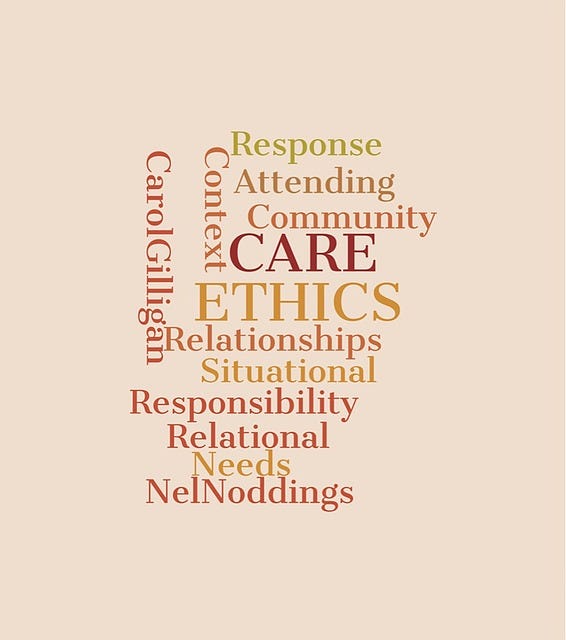Nobility
by Alice Cary
"True worth is in being, not seeming,—
In doing, each day that goes by,
Some little good—not in dreaming
Of great things to do by and by.
For whatever men say in their blindness,
And spite of the fancies of youth,
There’s nothing so kingly as kindness,
And nothing so royal as truth.
We get back our meet as we measure—
We cannot do wrong and feel right,
Nor can we give pain and gain pleasure,
For justice avenges each slight.
The air for the wing of the sparrow,
The bush for the robin and wren,
But always the path that is narrow
And straight, for the children of men.
‘Tis not in the pages of story
The heart of its ills to beguile,
Though he who makes courtship to glory
Gives all that he hath for her smile.
For when from her heights he has won her,
Alas it is only to prove
That nothing’s so sacred as honor,
And nothing so loyal as love!
We cannot make bargains for blisses,
Nor catch them like fishes in nets;
And sometimes the thing our life misses
Helps more than the thing which it gets.
For good lieth not in pursuing,
Nor gaining of great nor of small,
But just in the doing, and doing
As we would be done by, is all.
Through envy, through malice, through hating,
Against the world, early and late,
No jot of our courage abating—
Our part is to work and wait.
And slight is the sting of his trouble
Whose winnings are less than his worth;
For he who is honest and noble,
Whatever his fortunes or birth."
In the poem 'Nobility' by Alice Cary, the author presents a thought-provoking perspective on the true meaning of nobility and the qualities that define a noble character. The poem challenges the traditional notion of nobility as a birthright or a status bestowed upon individuals based on their social class or lineage. Instead, Cary suggests that true nobility is a virtue that is earned through one's actions, beliefs, and moral integrity. This interpretation is in line with contemporary society, which frequently values a person more for their wealth or social standing than for their character or deeds.
The opening lines of the poem set the tone for this unconventional view of nobility. Cary declares, "True worth is in being, not seeming," emphasizing that genuine nobility lies in one's authentic self rather than in superficial appearances or societal expectations. The poet argues that nobility is not about pretending to be someone you are not or adhering to the norms of a particular social class. Instead, it is about embracing your true identity and living in accordance with your principles.
Cary further delves into the qualities that constitute nobility, stating that it is 'in doing each day that goes by some little good—not in dreaming of great things to do by and by.' This line underscores the importance of small, everyday acts of kindness and goodness in defining a noble character. The poet suggests that true nobility is not about grandiose gestures or ambitious plans for the future but rather about the consistent practice of doing good in the present moment.
The poem also touches upon the idea that nobility is not contingent upon external recognition or praise. Cary writes, "For whatever men say in their blindness and spite of the fancies of youth, "there's nothing so kingly as kindness and nothing so royal as truth." This passage emphasizes that nobility is an intrinsic quality that is not dependent on the opinions or judgments of others. Kindness and truthfulness are portrayed as the ultimate marks of a noble character, surpassing any superficial notions of royalty or kingship.
Furthermore, the poem challenges the idea that nobility is inherited through family lineage. Cary asserts that "blood is the real thing in life" and that "the true hearts that love you" are the ones that matter most. This suggests that the bonds of love and genuine connection are more significant in determining one's nobility than the accidents of birth or the prestige of one's family name.
"True Worth is in Being not Seeming."
I found this quote at the beginning of the poem captivating. Alice Cary presents a profound and thought-provoking statement: 'True worth is in being, not seeming.' This line encapsulates the central theme of the poem, which challenges societal norms and expectations surrounding the concept of worth and value. Cary suggests that an individual's genuine worth lies in their authentic self, their actions, and their character rather than in the superficial appearances they may project to the world. This message is universal, speaking to all of us who have ever felt the pressure to conform or to present a certain image to the world.
The word "being" in this context refers to one's true essence, the core of one's identity, and the values one upholds. It is about living authentically and staying true to oneself, regardless of external pressures or expectations. Cary emphasizes that an individual's true worth is independent of how others view them or the social roles they play. Instead, it is an intrinsic quality that emanates from within, shaped by one's thoughts, beliefs, and moral compass.
On the other hand, the word "seeming" implies a façade, a pretense, or an illusion. It refers to the act of presenting oneself in a manner that may not align with one's true self, often to gain approval, acceptance, or admiration from others. Cary argues that this pursuit of superficial appearances is ultimately hollow and does not contribute to one's genuine worth. She suggests that individuals who focus on "seeming" rather than "being" are likely to find themselves trapped in a cycle of inauthenticity and self-doubt.
The statement' true worth is in being, not seeming' encourages individuals to prioritize self-discovery, self-acceptance, and personal growth over the desire to conform to societal expectations or to seek validation from others. It is a call to action, urging us to embrace our unique identities, flaws, and all, and to live in accordance with our values and principles. Cary suggests that by doing so, we can cultivate a sense of inner peace, self-respect, and genuine self-worth that is not contingent upon external factors. This powerful message inspires us to strive for authenticity and to define our worth on our own terms.
Moreover, this line can be seen as a scathing critique of societal norms that place undue emphasis on appearances, status, and material possessions as markers of worth. Cary challenges the idea that a person's value is based on their social class, wealth, or public reputation. Instead, she asserts that one's character, acts of kindness toward others, and positive influence on the world are what truly define one's worth.
In essence, "true worth is in being, not seeming" is a powerful reminder to prioritize authenticity, integrity, and personal growth over the pursuit of superficial appearances or societal validation. It encourages individuals to look within themselves to discover their genuine worth and to live in a manner that is true to their values and beliefs. By embracing this philosophy, individuals can cultivate a deep sense of self-respect, purpose, and fulfillment that is not dependent on external factors but rather on the strength of their own character.
Do you present your true self? Do I? We each really should ask ourselves this question.








